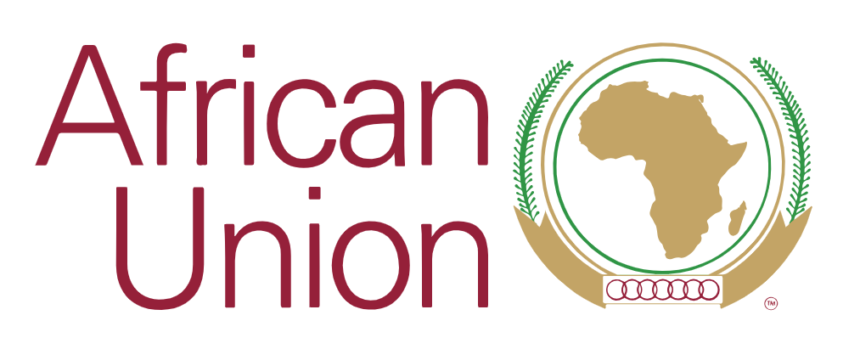Women in Agriculture: Breaking the Cycle of Exploitation and Poverty
Every planting season, women in our villages wake up before dawn, their hands rough from years of tilling the land. They labour tirelessly under the scorching sun, sowing maize, cassava, pearl millet, sorghum, cowpeas, or peanuts. For decades, they have followed the same routine, hoping that this time, the harvest will be different—that they will finally make enough to send their children to college, repair leaking roofs, or at least have some savings to cushion them from the uncertainties of farming. But season after season, they find themselves trapped in a cycle of struggle, earning barely enough to survive.
The women at home are not alone. Across much of Africa, millions of women toil on farms that yield little financial return, despite their immense contribution to food security. While they form the backbone of small-scale agriculture, they remain the least rewarded. Their efforts are frustrated by exploitative middlemen, unstable markets, limited access to credit, and restrictive trade policies that lock them out of more profitable opportunities.
Dr. Ibrahim Assane Mayaki, African Union Special Envoy for Food Systems, observes that for many small-scale farmers, the journey from farm to market is riddled with intermediaries who dictate prices to their advantage. Middlemen buy produce at throwaway prices, only to resell it at significantly higher rates, leaving farmers with meager earnings. Women farmers, often lacking direct access to markets, are at the mercy of these brokers who control supply chains. Studies indicate that middlemen underpay rural women farmers by 30-50% below market value, keeping them economically vulnerable. In addition to market exploitation, rural women struggle to access financial support to expand their farms.
According to the Food and Agriculture Organization (FAO), women receive less than 10% of available agricultural credit, limiting their ability to purchase high-quality seeds, fertilizers, pesticides, and irrigation equipment. The lack of collateral, restrictive banking policies, and financial illiteracy further hinder their ability to secure funding, leading to lower yields and poor crop quality.
Land ownership is another major hurdle. In many rural communities, land inheritance laws and cultural norms favor men, leaving women to farm on borrowed or leased land. Studies show that only 15% of women in Sub-Saharan Africa own land, reducing their ability to secure loans for expansion. This lack of ownership discourages long-term investments in soil improvement and productivity-enhancing innovations, keeping women in subsistence farming. Unstable markets further compound these issues. Without reliable price controls, rural women are often forced to sell their produce at low prices to avoid post-harvest losses. The absence of storage facilities and market linkages exacerbates this problem, with post-harvest losses estimated at 30-40% in Sub-Saharan Africa.
Although women dominate informal cross-border trade in Africa, making up 70% of informal traders in some regions, they face bureaucratic hurdles, high tariffs, corruption at border posts, and a lack of awareness regarding trade policies. Many high-value markets require certifications, packaging, and logistics—all of which require financial investment that rural women often lack. Without capital, they remain restricted to local markets where competition is high and profits are lower.
Addressing these challenges requires a multi-faceted approach. Dr. Mayaki advises women farmers to form or join cooperatives, which can help them collectively bargain for better prices, access bulk purchasing discounts on inputs, and eliminate exploitative middlemen. Cooperatives should also develop digital marketplaces and mobile trading platforms where women can connect directly with buyers, ensuring fairer pricing. Governments, NGOs, and financial institutions must design gender-responsive credit facilities, including collateral-free loans and microfinance programs tailored for women farmers. Expanding mobile banking and digital wallets to rural areas can facilitate transactions and savings. Additionally, financial literacy training should be introduced to help women understand budgeting, credit management, and investment strategies.
Legal reforms that promote equal land ownership rights for women are crucial. Advocacy efforts should focus on ensuring that inheritance laws are equitable and that women farmers have secure land tenure, enabling them to make long-term investments in their farms. Governments and private sector players should invest in structured market systems, including farmer markets, digital trading platforms, and cold storage facilities. Participation in regional agricultural exhibitions and trade fairs should also be promoted to connect rural women with larger markets. Contract farming initiatives, where agribusiness firms engage directly with women farmers, can ensure fair pricing and market security.
To enhance cross-border trade opportunities, trade regulations should be simplified, and training on trade policies and export procedures provided. Setting up cross-border trade facilitation desks can offer guidance and protection against exploitation at borders. Preferential trade agreements for small-scale women traders should also be introduced to enhance their competitiveness in foreign markets. Only 5% of women farmers currently receive agricultural training. Governments should expand women-focused agricultural extension programs, leveraging mobile apps and radio-based training to reach remote areas. Peer-to-peer learning and mentorship programs can also provide knowledge on best practices, innovative farming techniques, and climate-smart agriculture to improve productivity and resilience against climate change.
The challenges faced by rural women farmers are deeply rooted in structural inequalities, but they are not insurmountable. With targeted interventions in financial inclusion, cooperative societies, market access, training, and trade policies, women can break free from the cycle of exploitation and poverty. There are examples of what happens when women in agriculture are supported. In Botswana, Mavis Nduchwa, founder of Chabana Farms, has successfully integrated modern technology into farming, producing organic poultry and crops while advocating for more women to join agribusiness. In Zimbabwe, women like Mari Choumumba have embraced innovative methods such as maggot farming to reduce livestock feed costs and promote environmental sustainability, turning an unconventional practice into a profitable venture. Meanwhile, across Kenya, Tanzania, Rwanda, and the Democratic Republic of Congo, Margaret Nyamumbo’s Kahawa 1893 initiative has created a sustainable coffee supply chain that ensures fair compensation for female farmers, leveraging direct consumer support through digital tipping systems.
By implementing sustainable policies, strengthening access to credit, and ensuring better market integration, we can transform Africa’s agricultural landscape. Empowering rural women farmers is not just about food security—it is about economic justice, social equity, and unlocking the full potential of Africa’s agricultural economy.








